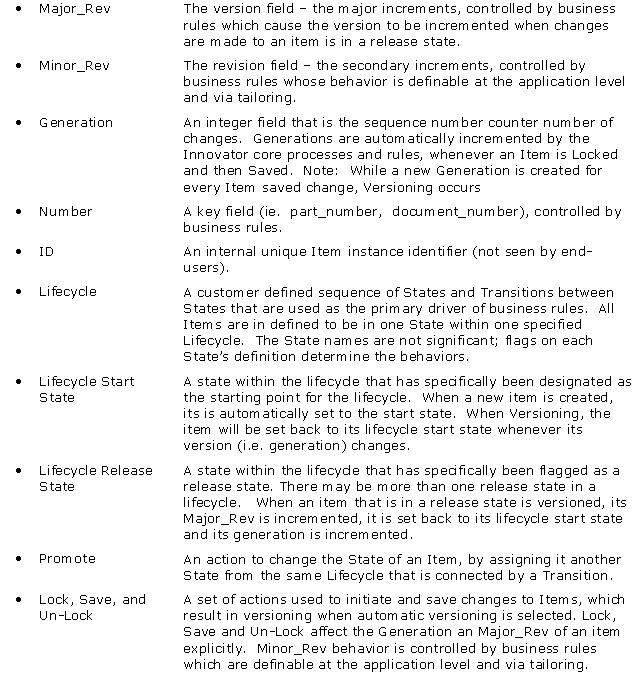The business rule behavior of an Item is established by the default properties of its ItemType definition and its Lifecycle State Properties stored on the Item instance. As an Item instance moves through the States of a business Lifecycle it may undergo changes (versioning) to its meta-data or its Relationships. These changes result in a re-identification of the Item over time, using revision, version and generation properties. The versioning behavior is controlled by the ItemType definition properties, and the flags attached to the current Lifecycle State.
Versioning can be initiated as either an automatic or a manual process. When selected as an automatic process, the Generation of the item is incremented each time the item is changed (i.e., locked, edited and unlocked). The lifecycle for the item is automatically set back to the lifecycle start state. When manual versioning is selected, the item is only incremented upon explicit request by a user. As with automatic versioning, the Generation is incremented and the lifecycle is set back to the start state.
Additional logic has been incorporated to control incrementing of a Major_Rev. When the lifecycle state for an item instance is a release state, any subsequent changes to that item will result in a new Major_Rev, as well as incrementing the Generation and setting the lifecycle back to the start state.

©2004 Aras Corporation - All Rights Reserved